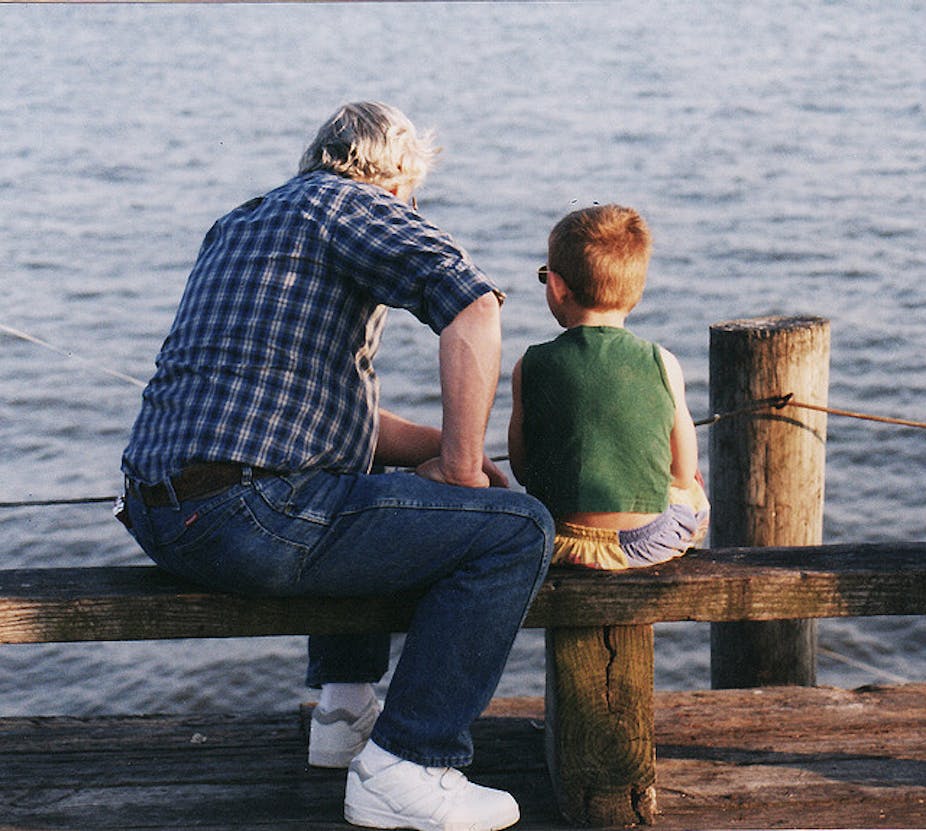There’s no way around it: children sometimes have to hear it like it is. Despite our desire to keep their early years carefree, we may not be doing them a favour by keeping some hard truths from them. And for those things that are inescapable, like the death of a family member, glib answers won’t do.
We all learn at some stage that the world is not as we’d like it to be. That is possibly the single most important lesson in life. The big question is how to teach it to our kids, and when.
The “when” is sometimes out of our control, as circumstances can dictate. But there are parts of the “how” that can be more manageable.
Children are not empty vessels
Kids create deep and powerful narratives about the world regardless of what we do or don’t do. They do this for the same reasons we all do - to explain how the world works and to create meaning.
It is a mistake to think this narrative is absent in them until we decide to help create one. The reluctance we sometimes have to involve ourselves can be a result of this naive view.
We imagine they are somehow neutral or unsullied in their views, and that when we talk to them about hard issues we are forcing them to come to grips with an imperfect world.
We don’t always know what they don’t know. We assume they have developed a lot of cultural norms when they haven’t, and we assume they are unaware of things they have really thought a lot about.
One thing is sure: if we don’t help them make their narratives, they will do it themselves anyway, and perhaps not in ways that are healthy or optimal.
There are two important things we can do as parents to prepare our children for some deep and potentially disturbing conversations, and to help them build a more rational picture of the world.
The first is to help them make sense of the world through frequent and long conversations. Making meaning is the prime function of language, after all. This is where an established behaviour of talking is critical.
The only way to know how they currently see things is to talk with your child - a lot. Talk about issues big and small, and give them the chance to ask things that take time to well up in conversation.
The second is to treat them as rational beings capable of making sense of what is going on around them.
Children are far more rational than we give them credit for. And they are far more capable of deep insights than we usually imagine.
I work in the area of teaching children to think. The ability of very young children to do this well is a constant reminder of how our educational system underestimates them.
Two-way exchanges
The thing that makes a rational approach possible is treating conversations as two-way exchanges. We don’t just talk to children to instruct them, and we don’t just talk to understand them - we also talk so we can understand each other.
This is a critical point. By talking to understand each other we give children the opportunity to normalise their thinking, and to help understand the norms of mature social thinking. This in turn is important because it provides the ground for a rationality based in social competence, in which we reason to solve problems through discourse and social interaction.
As the Russian psychologist Vygotsky wrote in Mind and Society, children first learn a competence socially and then internalise it.
Every function in the child’s cultural development appears twice: first on the social level, and later, on the individual level.
To put it simply, if you have not modelled how to talk through difficult issues with a child, that child has not learned to internalise a mechanism for dealing with such issues.
This is a key component of teaching resilience - and is there anything we want for our children more than this?. For without the cognitive tools to manage change and uncertainty, they will be less resilient than they could be.
Whether the issue is the crashing reality of Santa’s state of existence, the death of a family member, or a dramatic change in lifestyle, there will be limited recourse for children to rationally understand the situation, and their role in it, if they have not been taught these skills.
So talk to your children about how they reckon Santa does it. Talk about mortality and what it means for us as humans. Talk about what life was like in the past and could be like in the future. Explore and unpack all the implications of these things with them.
Or just talk with them a lot about anything. Give them opportunities to come up with questions about these things themselves. If you give them the chance, they will not disappoint you. And by doing so, you will make them less disappointed.

